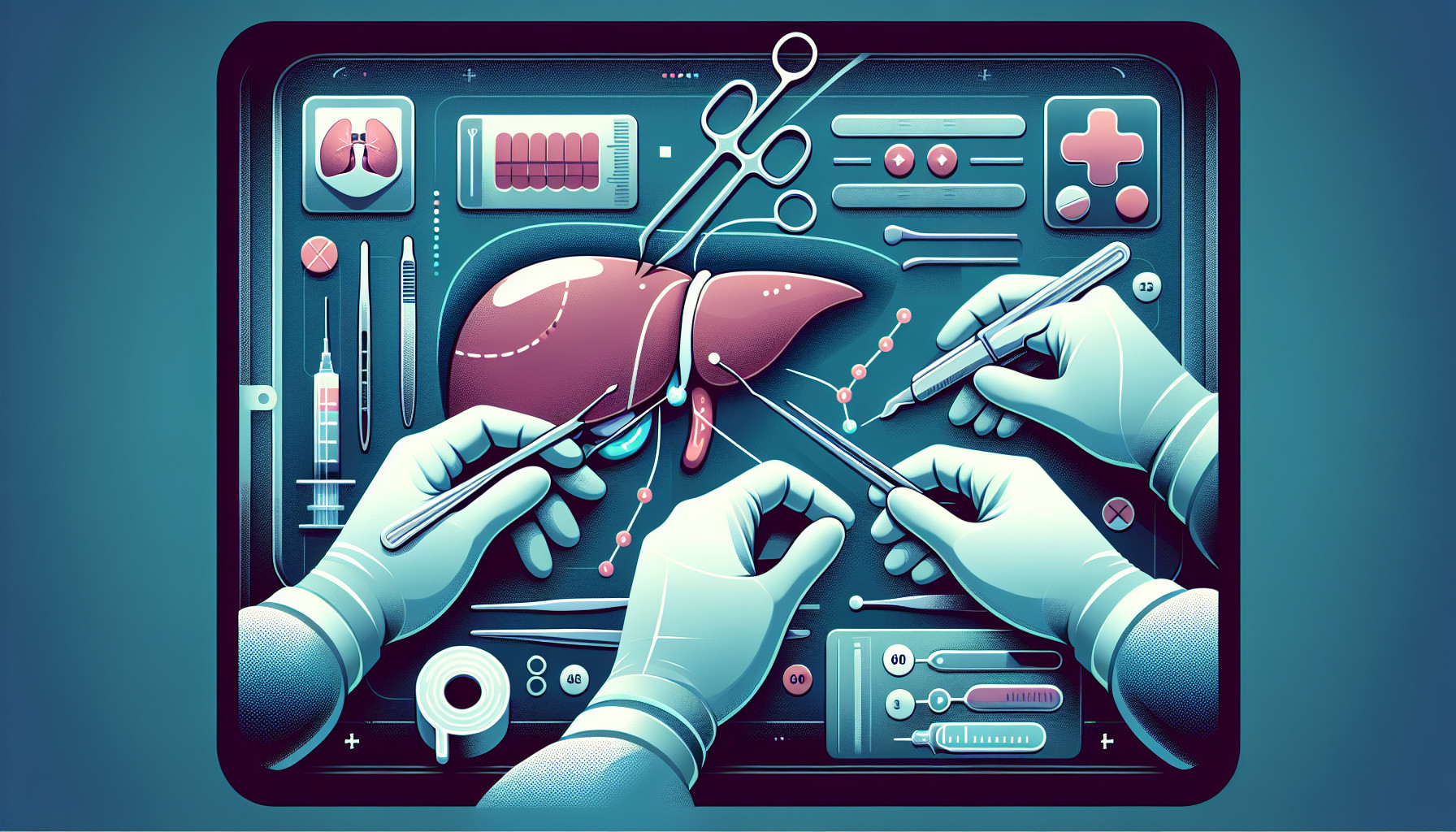Our Summary
This research paper investigates the safety and effectiveness of a specific medical procedure known as Transjugular Liver Biopsy (TJLB) in children. TJLB is a method of taking liver tissue samples through the internal jugular vein, which is often used when there are problems with blood clotting or fluid accumulation in the abdomen.
The researchers examined existing studies on this topic and found eight that met their criteria, involving a total of 361 children who had been given 374 TJLB procedures. The results were very positive, with almost all procedures being successful and yielding good quality samples for examination.
However, there were some complications reported, the most common being bleeding where the procedure was carried out, fever lasting less than 24 hours, the need for a blood transfusion, a rapid heart rate, and pain which required painkillers.
In conclusion, the research suggests that TJLB is a safe and effective procedure for diagnosing liver conditions in children, especially those with pre-existing blood clotting issues and fluid build-up in the abdomen. Further studies with larger groups of children will help confirm these results.
FAQs
- What is Transjugular Liver Biopsy (TJLB) and why is it used in children?
- What were the most common complications reported after the TJLB procedures in children?
- According to the research, is TJLB a safe and effective method for diagnosing liver conditions in children?
Doctor’s Tip
A doctor might tell a patient undergoing a liver biopsy to avoid taking blood-thinning medications, such as aspirin or ibuprofen, for a certain period of time before the procedure to reduce the risk of bleeding. They may also advise the patient to have someone available to drive them home afterwards, as they may feel groggy or dizzy from sedation. Additionally, the doctor may recommend resting and avoiding strenuous activities for a day or two after the biopsy to allow the liver to heal properly.
Suitable For
Patients who are typically recommended for a liver biopsy include those with suspected liver diseases such as hepatitis, cirrhosis, fatty liver disease, autoimmune liver diseases, liver cancer, or unexplained abnormal liver function tests. Additionally, patients with abnormal imaging findings, unexplained liver enlargement, or unexplained jaundice may also be recommended for a liver biopsy to further evaluate their condition. Patients with a history of alcohol abuse, exposure to hepatotoxic medications or chemicals, or a family history of liver disease may also be candidates for a liver biopsy. Ultimately, the decision to perform a liver biopsy is made by a healthcare provider based on the individual patient’s medical history, symptoms, and test results.
Timeline
Before the liver biopsy:
- The patient will be scheduled for the procedure and given instructions on fasting before the biopsy.
- The patient may undergo blood tests and imaging studies to assess the liver function and the location of the biopsy.
- The patient will be informed about the risks and benefits of the procedure and asked to sign a consent form.
During the liver biopsy:
- The patient will be given local anesthesia to numb the area where the biopsy needle will be inserted.
- The biopsy needle will be inserted through the skin and guided to the liver to collect a tissue sample.
- The patient may feel some pressure or discomfort during the procedure, but it is generally well-tolerated.
After the liver biopsy:
- The patient will be monitored for a few hours to check for any immediate complications such as bleeding or pain.
- The patient may experience some mild discomfort or pain at the biopsy site for a few days.
- The patient will be advised to avoid strenuous activities and take it easy for a few days after the procedure.
- The tissue sample will be sent to a lab for analysis, and the results will be shared with the patient during a follow-up appointment with their healthcare provider.
What to Ask Your Doctor
- What is the reason for recommending a liver biopsy in my case?
- What are the potential risks and complications associated with the liver biopsy procedure?
- How will the biopsy be performed (e.g. through the skin, internal jugular vein)?
- How long will the procedure take and will I need to stay in the hospital afterwards?
- Will I be sedated or given anesthesia during the procedure?
- How soon will I receive the results of the biopsy?
- What follow-up care will be required after the biopsy?
- Are there any specific instructions I need to follow before or after the biopsy procedure?
- Will I need to stop taking any medications before the biopsy?
- Are there any alternative diagnostic tests that could be considered instead of a liver biopsy?
Reference
Authors: Smayra K, Miangul S, Yap N, Shi A, Abdulsalam F, Adra M, Nakanishi H, Ball J, Betts TA, Than CA, Parthipun A. Journal: Dig Dis Sci. 2023 Oct;68(10):3846-3856. doi: 10.1007/s10620-023-08071-4. Epub 2023 Aug 9. PMID: 37555881
